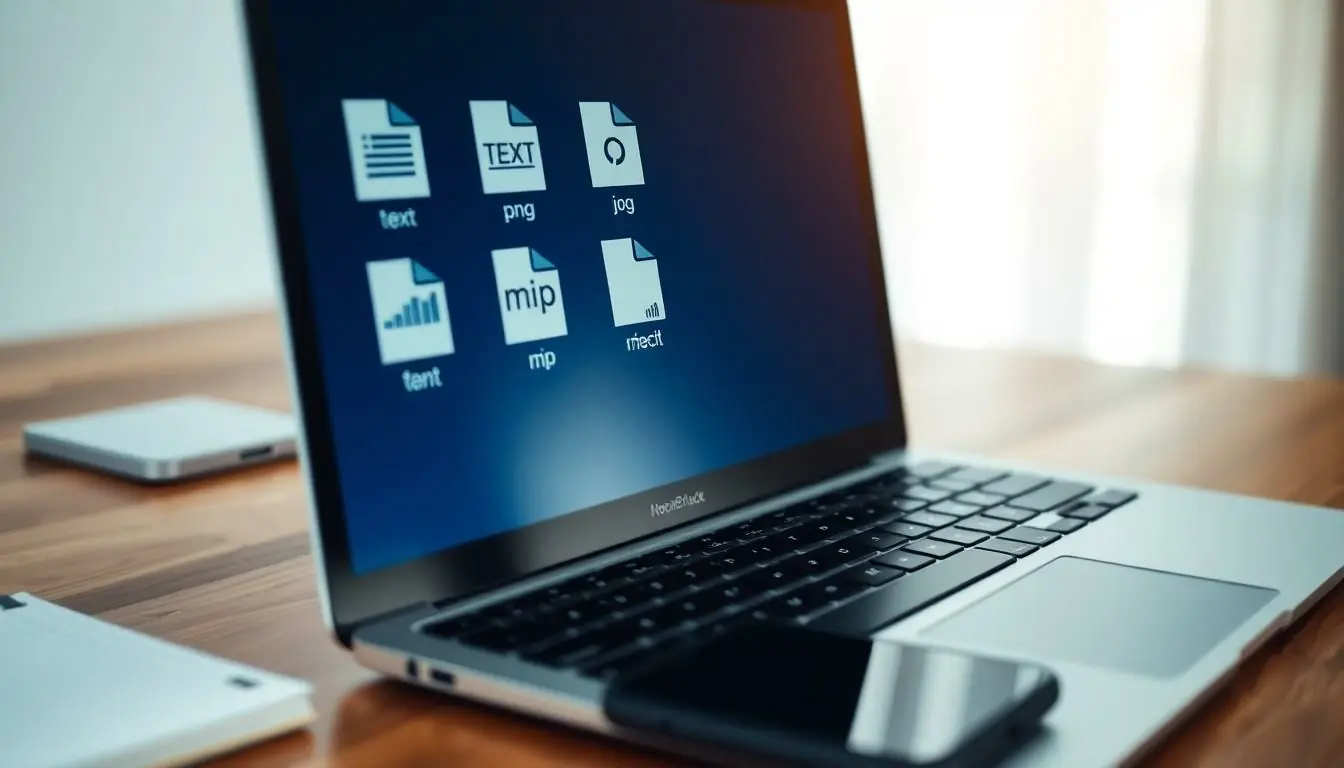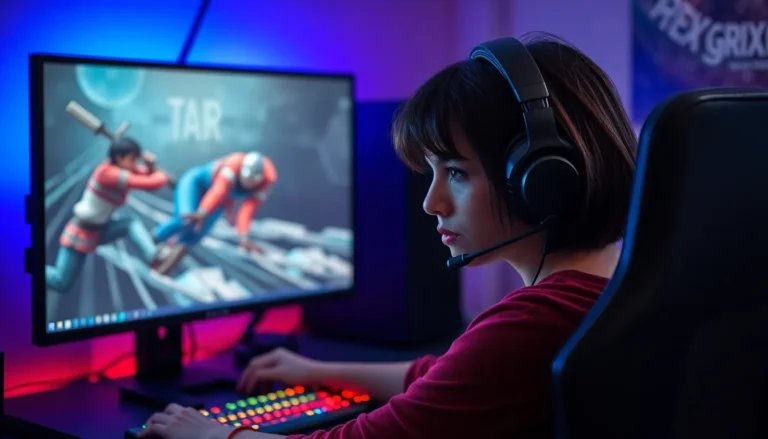Table of Contents
ToggleIn a world where communication often feels like deciphering hieroglyphics, ChatGPT is here to save the day—one file at a time. But wait, before you start throwing every document you’ve ever created into the digital abyss, it’s crucial to know what files ChatGPT actually accepts. Spoiler alert: not all files are created equal, and some might just end up as digital paperweights.
Understanding ChatGPT File Capabilities
ChatGPT accepts multiple file types for enhanced communication and interaction. Text files such as .txt and documents like .docx serve as primary formats. Images including .png and .jpg can also be uploaded for visual context. Each file type brings unique benefits, contributing to varied discussions.
Audio files such as .mp3 provide a way to incorporate voice interactions. While these file types are supported, some may face limitations. For instance, large file sizes can hinder processing and interpretation.
Certain proprietary formats are not compatible with ChatGPT. Formats like .pdf may require conversion to text or another supported type to facilitate understanding. Additionally, complex multimedia files may prove challenging for accurate analysis.
Users benefit from using standard formats that ChatGPT readily recognizes. Familiar file types promote efficient processing and reduce the chances of errors. Maintaining files within the required specifications ensures smooth interactions.
For best results, keeping files simple and straightforward enhances compatibility. Using concise text with clear formatting aids ChatGPT in providing accurate responses. Choosing files that align with capabilities leads to effective communication.
Types of Files Accepted by ChatGPT

ChatGPT accommodates various file types, enhancing user interaction and information processing. Understanding these types allows for better use of the platform.
Text Files
Text files such as .txt and .docx provide clear communication venues. These formats support plain and formatted text, allowing for structured data input. Users find that concise messages encourage more accurate responses. Various authors utilize these formats to convey ideas clearly, fostering efficient interactions. Loading large text files may slow response times, so keeping files manageable is essential.
Image Files
Image files like .png and .jpg allow users to share visual content effectively. By uploading images, individuals can enhance discussions and provide visual context. Clarity in images impacts performance; high-resolution files may require more processing power. Using standard formats helps prevent compatibility issues, ensuring that images render correctly. Users often find that well-labeled images improve understanding and interactions.
Audio Files
Audio files in formats such as .mp3 enable communication through sound. These types of files serve well for sharing voice snippets or sound cues. ChatGPT interprets audio content, allowing it to respond accurately to verbal inquiries. Quality matters greatly; clear audio recordings lead to better transcription and understanding. Sticking to widely-accepted audio formats minimizes potential issues during analysis.
Video Files
Video files are not directly supported, as ChatGPT primarily focuses on text, images, and audio post-processing. Users looking to share videos should extract audio or key visuals into compatible formats. While certain platforms provide video chat features, those aren’t part of ChatGPT’s functionality. Minimizing video complexity by simplifying content improves overall interaction. Adopting alternative formats helps maintain communication clarity and effectiveness.
Limitations on File Types
Certain limitations exist regarding the file types compatible with ChatGPT. Recognizing these constraints helps users optimize their interactions effectively.
Size Restrictions
ChatGPT imposes size restrictions on files submitted for processing. Each file should generally remain under a maximum size of 10 MB, as larger files may distort processing speed or even lead to errors. Ensuring files meet this limit enhances efficiency and accuracy. Users often experience delays or failed uploads with oversized files. Therefore, keeping files concise promotes smoother exchanges.
Format Compatibility
Format compatibility plays a crucial role in the effectiveness of ChatGPT interactions. While .txt, .docx, .png, .jpg, and .mp3 files work well, users may encounter challenges with proprietary formats, such as .pdf, which often require conversion. Complex formats may hinder ChatGPT’s ability to analyze content accurately. Using standard formats boosts processing success rates and minimizes potential errors. Users benefit from prioritizing easily recognizable formats to ensure optimal performance.
Use Cases for Different File Types
Text files like .txt and .docx offer clear communication avenues with structured data. These formats enhance user interaction by ensuring concise input. Image files such as .png and .jpg provide visual context, which can significantly improve engagement. Clarity and resolution in images matter, as they directly impact the effectiveness of discussions.
Audio files in .mp3 format facilitate sound-based exchanges, allowing for nuanced conversations. Quality plays a critical role since it influences the accuracy of interpretation. Large files can hinder processing, so keeping them under 10 MB is recommended for optimal performance.
Proprietary formats such as .pdf require conversion to be compatible with ChatGPT. Users should focus on standard formats as they boost processing success rates. Document size and complexity are essential considerations; manageable files ensure swift responses. Multimedia files presenting intricate data may complicate accurate analysis, leading to potential misunderstandings.
Maintaining simple and straightforward files fosters better interactions. Attention to concise text and clear formatting enhances compatibility with ChatGPT. By prioritizing easily recognizable formats, users promote efficient processing and reduce errors in communication. Choosing the right file type ultimately enhances the overall experience with ChatGPT’s capabilities.
Understanding the types of files ChatGPT accepts is essential for maximizing its potential. By using compatible formats like .txt, .docx, .png, .jpg, and .mp3, users can ensure smoother interactions and more accurate responses.
Sticking to standard file types not only enhances processing efficiency but also minimizes errors. Keeping files concise and clear further boosts compatibility. As users navigate their communication needs, prioritizing these guidelines will lead to a more effective and engaging experience with ChatGPT.








